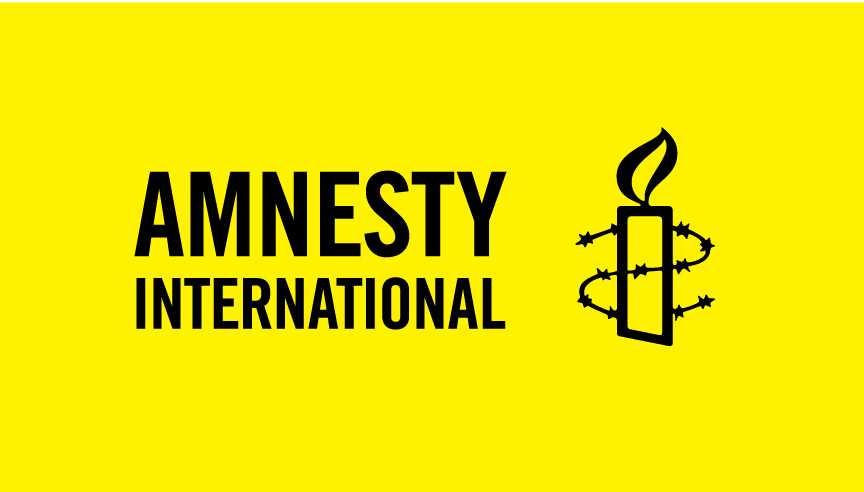BRAVE:Edit, a collaboration between Amnesty International and Wikimedia (Wikipedia’s non-profit organization), will see hundreds of online activists from over 20 countries taking to the popular website to upload biographies of women human rights defenders.
Women human rights defenders are women, in all of their diversity, working on any human rights issue, and defenders of all genders working on rights related to gender and sexuality. The events aim to raise the profile of the amazing work done by these women, who are under-represented on Wikipedia’s pages.
“There are more than five and a half million entries in the English language version of Wikipedia alone, on the most disparate subjects. However, less than 20 per cent of biographies are dedicated to women, with few devoted to the important work of human rights defenders, and even fewer to women human rights defenders,” said Guadalupe Marengo, Head of Amnesty International’s Global Human Rights Defenders Programme.
“BRAVE:Edit hopes to fill this glaring gap. These are stories of some truly inspirational women who have overcome huge obstacles and fought entrenched discrimination in defense of human rights. Activists from across the globe will be helping to bring them to a worldwide audience where they belong.”
The work of women human rights defenders often breaks new ground, as they continue to challenge power and harmful social norms. However, these same norms mean women often face more discrimination than their male counterparts. As individuals, they are considered less worthy because they are a woman, an LGBTI person or because they work on issues related to gender and sexuality. They are also at risk of violence, sexual attacks and harassment.
The work of women human rights defenders continues to be underrepresented and insufficiently recognized by mainstream society, policy makers and the media. Very little public information is available about the incredible work they do, and what exists is usually limited to specialized platforms.
According to John Lubbock, Communications Coordinator, from Wikimedia UK:
“Working with Amnesty International’s global community is a chance for Wikimedia to reach out to new audiences to encourage them to become involved in the creation of knowledge about their identities and histories, and to make sure that women human rights defenders are given the importance and prominence they deserve online.”
Wikipedia is visited by 1.4 billion unique devices per month, but only a fraction of its users edit the content. Globally, only around 50 per cent of people have access to the internet, and the people who most frequently edit Wikipedia are usually white, European or North American and male. The content tends to reflect their interests, so this is an opportunity to encourage more editors and more content about different identities to better reflect the world we live in.
It is hoped that after the edit-a-thon inspiring individuals such as Alessandra Ramos Makkeda from Brazil, Maryam Akbari Monfared from Iran, and Elena Gorolová from Czechia will all have a place on Wikipedia.
Alessandra is a trans-woman and LGBTI activist, who has faced a catalogue of discrimination. Time and time again, Alessandra has been faced with the words “we don’t accept your kind here”. She was even denied employment because she revealed she was trans. Despite the obstacles, Alessandra continues to fight against discrimination and promotes discussions on transgender, lesbian and gay issues.
Maryam is a prisoner of conscience. She was arrested in 2009, forcibly disappeared for five months, and is now serving a 15-year sentence after being convicted of “enmity against God”. Throughout her detention she has continued to campaign by publishing open letters about prison conditions for women. Maryam also filed a formal complaint demanding truth and justice for several thousand political prisoners who were victims of extrajudicial executions in 1988, including her siblings. As a result, she has been threatened with an extended prison sentence and denied medical care.
Elena is another brave woman who deserves a place on Wikipedia. Elena was forcibly sterilized in hospital right after giving birth to her second son – she had not given her informed consent to the procedure. Her experience spurred her to join other women and campaign to end this horrific practice and the discrimination of Roma women.
Bridget Tolley, a Canadian activist in the Indigenous-led justice movement for missing and murdered Indigenous women, girls and Two-Spirit people, said:
“As the fifth most visited website in the world, Wikipedia provides a fantastic opportunity to bridge the gap and ensure women such as myself gain the visibility we deserve. As an Algonquin woman, grandmother, and great-grandmother, I have faced the impacts of colonialism, racism, economic exploitation, systemic abuse and hatred of women all my life, but to have my work highlighted in a positive way means that our struggles and our resilience as Indigenous women can no longer be ignored. We will not be silenced.”
Amnesty International’s offices around the world have been recruiting editors to upload biographies, with the aim of adding the names or improve the profiles of hundreds of women human rights defenders the world over. From the UK to the Philippines, Nigeria, India and Brazil, edit-a-thons will be held in countries, spanning all regions of the world.
BRAVE:Edit is part of Amnesty International’s Brave campaign, which aims to strengthen the recognition and protection of human rights defenders around the world.

